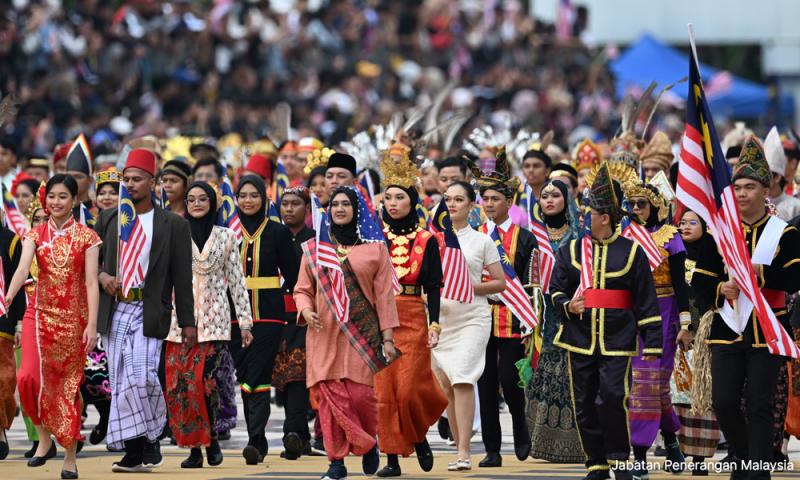LETTER | Upholding the spirit to prevent statelessness
LETTER | Sept 16, 1963, is a symbol of unity when Sabah and Sarawak joined the Federation of Malaya to form Malaysia. It is a symbol of inclusion and togetherness which our current government is strongly advocating for.
But not everyone is fortunate enough to be able to call themselves a “Malaysian”. Despite being born in Malaysia and having lived in Malaysia their entire lives, there are many individuals who are denied their right to be recognised as Malaysians.
These individuals were turned away from the doors of the National Registration Department for various reasons such as their inability to show the identity of their parents or the lack of documentation.
It has been often said that citizenship is the “highest award” from the Malaysian government. Let us not forget where our right to citizenship stems from.
Unlike some other countries which have specific Acts on citizenship and nationality, Malaysia’s Federal Constitution is the sole document governing our right to citizenship.
Our Constitution is a combination of the principles of jus soli (right of soil) and jus sanguinis (right of blood/lineage).
Prior to 1962, the unqualified principle of jus soli operated in granting citizenship to persons so long as they were born in Malaysia. In 1962, the principle of jus soli was amended whereby in order to be entitled to automatic citizenship, the person must also be born to a parent who is a citizen or a permanent resident of Malaysia.
At face value, this amendment may be to the detriment of children who were abandoned without knowing the identity of their parents or children born to stateless parents.
However, a safeguard to prevent statelessness was introduced under the provision of Section 1(e) of Part II Second Schedule of the Federal Constitution, whereby it does not require the children to prove the parents’ identity.
This modification of the jus soli principle “will not apply to any case where the result would be to render the child stateless.” Such are the words of our former prime minister Tunku Abdul Rahman during the parliamentary debate in the House of Representatives on Jan 31, 1962.
The intention of our Constitution to prevent statelessness in Malaysia is not a new concept. Our Federal Court judges have painstakingly studied and researched the history behind the formation and intention of our Constitution.
Chief Justice Tengku Maimun Tuan Mat in CTEB & Anor v Ketua Pengarah Pendaftaran Negara, Malaysia & Ors [2021] 6 CLJ 471 observed that it was the intention of the framers of the Constitution in 1957 to confer citizenship as widely as possible to enable all relevant persons at the time of the formation of Malaya, and later Malaysia, the right to be granted citizenship by operation of law.
The Federal Court’s decision in CCH & Anor v Pendaftar Besar Bagi Kelahiran dan Kematian, Malaysia [2022] 1 MLJ 71 in November 2022 was applauded by many as it upheld the rights of foundlings to citizenship under the provision of Section 19B of Part III Second Schedule of the Federal Constitution. Section 19B is another legal safeguard from the framers of our Constitution to prevent foundlings and abandoned children from statelessness.
As we celebrate our 60th Malaysia Day, we should bear in mind that any proposals to restrict or abrogate our constitutional right to citizenship are contrary to the intention of our forefathers.
Citizenship is not a “privilege”, it is an inherent right provided to us under the Federal Constitution. It is time for us to recognise this and uphold the rights of these individuals in accordance with the spirit of our Federal Constitution.
We urge on this Malaysia Day and forward, all Malaysians, including the leadership of the Unity Government, to restore and uphold the dignity of the people based on trust, good values, and morals as well as fair and effective governance.
This letter was authored by JASMINE WONG (Association of Women Lawyers), MAALINI RAMALO (Development of Human Resources for Rural Areas Malaysia), MARY ANNE K BALTAZAR (Advocates for Non-discrimination and Access to Knowledge Sabah), and SIMON SIAH (Lawyer Kamek for Change Sarawak).
The views expressed here are those of the author/contributor and do not necessarily represent the views of Malaysiakini.
RM12.50 / month
- Unlimited access to award-winning journalism
- Comment and share your opinions on all our articles
- Gift interesting stories to your friends
- Tax deductable
